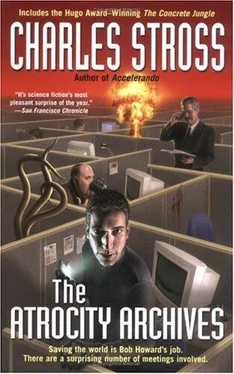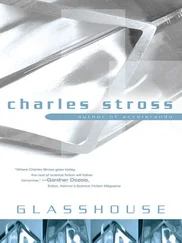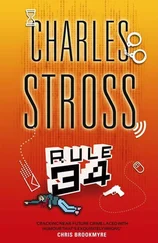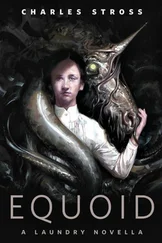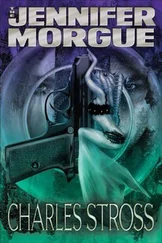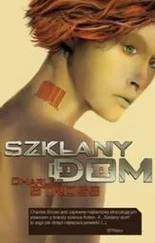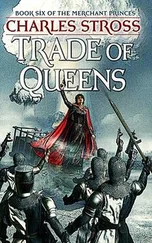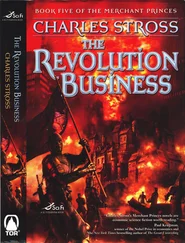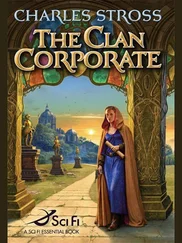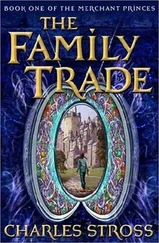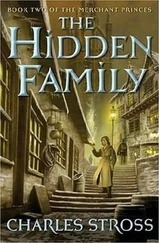Charles Stross - The Atrocity Archives
Здесь есть возможность читать онлайн «Charles Stross - The Atrocity Archives» весь текст электронной книги совершенно бесплатно (целиком полную версию без сокращений). В некоторых случаях можно слушать аудио, скачать через торрент в формате fb2 и присутствует краткое содержание. Жанр: Киберпанк, на английском языке. Описание произведения, (предисловие) а так же отзывы посетителей доступны на портале библиотеки ЛибКат.
- Название:The Atrocity Archives
- Автор:
- Жанр:
- Год:неизвестен
- ISBN:нет данных
- Рейтинг книги:3 / 5. Голосов: 1
-
Избранное:Добавить в избранное
- Отзывы:
-
Ваша оценка:
- 60
- 1
- 2
- 3
- 4
- 5
The Atrocity Archives: краткое содержание, описание и аннотация
Предлагаем к чтению аннотацию, описание, краткое содержание или предисловие (зависит от того, что написал сам автор книги «The Atrocity Archives»). Если вы не нашли необходимую информацию о книге — напишите в комментариях, мы постараемся отыскать её.
The Atrocity Archives — читать онлайн бесплатно полную книгу (весь текст) целиком
Ниже представлен текст книги, разбитый по страницам. Система сохранения места последней прочитанной страницы, позволяет с удобством читать онлайн бесплатно книгу «The Atrocity Archives», без необходимости каждый раз заново искать на чём Вы остановились. Поставьте закладку, и сможете в любой момент перейти на страницу, на которой закончили чтение.
Интервал:
Закладка:
Josephine is aghast. "You call this a government department?"
"Worse things happen in parliament every day of the year, my dear." Now that the proximate threat is over, Angleton looks remarkably imperturbable; right now I doubt he'd turn her into a frog even if she started yelling at him. "Besides, you are aware of the maxim that power corrupts and absolute power corrupts absolutely? Here we deal every day of the week with power sufficient to destroy your mind. Even worse, we cannot submit to public oversight-it's far too dangerous, like giving atomic firecrackers to three-year-olds. Ask Robert to tell you what he did to attract our attention later, if you like." I'm still dripping and cold, but I can feel my ears flush.
He focusses on her some more. "We can reinforce the geas and release you," he adds quietly. "But I think you can do a much more important job here. The choice is yours."
I snort under my breath. She glances at me, eyes narrowed and cynical. "If this is what passes for a field investigation in your department, you need me."
"Yes, well, you don't need to make your mind up immediately. Detached duty, and all that. As for you, Bob," he says, with heavy emphasis on my name, "you have acquitted yourself satisfactorily again. Now go and have a bath before you rot the carpet."
"Bathroom's two doors down the hall on the left," Andy adds helpfully from his station against the wall, next to the door: there's no doubt right now as to who's in charge here.
"But what happens now?" I ask, bewildered and a bit shocky and already fighting off the yawns that come on when people stop trying to kill me. "I mean, what's really happened? "
Angleton grins like a skull: "Bridget forfeited her department, so the directors have asked me to put Andrew in acting charge of it for the time being. Boris slipped up and failed to notice McLuhan; he is, ah, temporarily indisposed. And as for you, a job well done wins its natural reward-another job." His grin widens. "As I believe the youth of today say, don't have a cow…"
Afterword INSIDE THE FEAR FACTORY
FICTION SERVES A VARIETY OF PURPOSES. AT ITS heart lies the simple art of storytelling-of transferring ideas and sequences of events and pictures and people from the storyteller's head to that of the audience solely by means of words. But storytelling is a tool, and the uses to which a tool can be put often differs from-and is more interesting than-the uses for which the tool was designed.
Fiction is spun from plausible lies, contrived to represent an abreality sufficiently convincing that we do not question what we hear-and there are different forms within fiction. Consuming fiction is fun, an activity we engage in for recreation. So why, then, do we have an appetite for forms of fiction that make us profoundly uneasy, or that frighten us?
The chances are that if you've got to this afterword, you've done so the long way round-by reading "The Atrocity Archive" and "The Concrete Jungle." This book is a work of fiction, a recreational product. Nobody forced you to read it by holding a gun to your head, so presumably you enjoyed the experience. Now, at risk of demystifying it, I'd like to pick over the corpse, dissect its three major organs, and try to explain just how it all fits together.
Cold Warriors
I'd like to begin by painting an anonymized portrait of one of the greatest horror writers of the twentieth century-a man whose writing was a major influence on me when I wrote these stories.
D. was born in London in 1929, of working class parents. A bright young man, he was educated at St. Marylebone Grammar and William Ellis, Kentish Town, then worked as a railway clerk before undergoing National Service in the RAF as a photographer attached to the Special Investigation Branch.
After his discharge in 1949, he studied art, achieving a scholarship to the Royal College of Art. Working as a waiter in the evenings, he developed an interest in cooking. During the 1950s he travelled, working as an illustrator in New York City and as an art director for a London advertising agency, before settling down in Dordogne and starting to write. His first novel was an immediate success, going on to be filmed (in a version starring Michael Caine); subsequently he produced roughly a book a year for the rest of the twentieth century. D. is somewhat reclusive, and was notorious at one point for only communicating via Telex machine. He may also hold the record for being the first writer ever to produce a novel entirely using a word processor (around 1972).
D.'s work is coolly observed, with a meticulous eye for background detail and subtle nuance. His narrators are usually anonymous, their cynical inspection of organisation and situation infused with a distaste or disdain for their circumstances that some of the other characters find extremely annoying, if not ideologically suspect. The world they find themselves trapped in is a maze of secret histories and occult organisations, entities that overlap with the world we live in, hiding beneath the surface like a freezing cold pond beneath a layer of thin ice. And hovering in the background over it all is a vast grey pall, a nightmare horror of impending Götterdämmerung ; for the great game of D.'s protagonists, breezily (or depressively) cynical though they might be, is always played for the ultimate stakes.
D. is, of course Len Deighton, perhaps more commonly regarded as one of the greatest masters of the spy thriller (who, with such works as The Ipcress File , Funeral in Berlin , and Billion Dollar Brain , is considered by some critics to be the equal or even the superior of John Le Carré). And the background to his novels, the world that infused them with tension and provided the stakes for the desperate gambles he described, was the Cold War.
The Cold War came to an abrupt end in 1991 with the Soviet coup that led to the breakup of the Union of Soviet Socialist Republics. Today, just a decade or so after it ended with a whimper instead of a bang, it is increasingly hard to remember just what it was like to live with a face-off of such enormous proportions between two powers that represented the Manichean opposites of industrial civilization. But those of us who grew up during the Cold War have been as permanently scarred by it as any child who watched the events of 9/11 live on CNN; because the Cold War applied a thin varnish of horror atop any fictional exploration of diplomacy, spying, or warfare.
Going back to the origins of the Cold War is a difficult task; its roots grew from a variety of sources in the fertile, blood-drenched soil of the early twentieth century. What is not in question is the fact that, by 1968, the United States of America and the Union of Soviet Socialist Republics had assembled-and pointed at each other on a hair-trigger-arsenals unprecedented in the history of warfare. During the First World War, all combatants combined expended on the order of eleven million tons of explosives. This was equivalent to the payload of a single B-52 bomber or Titan-2 ICBM of the middle period Cold War, before smart weapons and precision guidance systems began to replace the headsman's axe of deterrence with a surgeon's scalpel.
Many of the children of the Cold War era grew up doubting that they'd ever reach adulthood. Annihilation beckoned, in an apocalyptic guise that was nevertheless anatomised far more precisely than the visions of any mediaeval mystic. We knew the serial numbers, megatonnage, accuracy, flight characteristics, and blast effects of our nemesis, lurking sleeplessly beneath the waves or brooding in launcher-erectors scattered across the tundra under a never-setting sun.
One of Len Deighton's skills was that he infused the personal dilemmas and conflicts of his protagonists-little men and women trapped in seedy, poorly paid bureaucratic posts-with the shadow of the apocalypse. Cold War spy fiction was in some respects the ultimate expression of horror fiction, for the nightmare was real. There's no need to hint darkly about forbidden knowledge and elder gods, sleeping in drowned cities, who might inflict unspeakable horrors, when you live in an age where the wrong coded message can leave you blinded with your skin half-burned away in the wreckage of a dead city barely an hour later. The nightmare was very real indeed, and arguably it has never ended; but we have become blasè about it, tap dancing on the edge of the abyss because the great motor of ideological rivalry that powered the Cold War has broken down and we're all business partners in globalisation today and forevermore.
Читать дальшеИнтервал:
Закладка:
Похожие книги на «The Atrocity Archives»
Представляем Вашему вниманию похожие книги на «The Atrocity Archives» списком для выбора. Мы отобрали схожую по названию и смыслу литературу в надежде предоставить читателям больше вариантов отыскать новые, интересные, ещё непрочитанные произведения.
Обсуждение, отзывы о книге «The Atrocity Archives» и просто собственные мнения читателей. Оставьте ваши комментарии, напишите, что Вы думаете о произведении, его смысле или главных героях. Укажите что конкретно понравилось, а что нет, и почему Вы так считаете.
